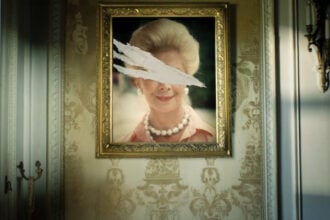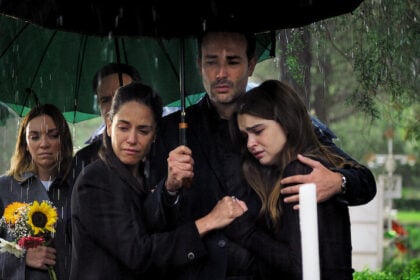“The Decameron” is a Netflix series created by Kathleen Jordan starring Amar Chadha-Patel, Leila Farzad and Lou Gala.
Netflix introduces us to a series that, although is not based on an original concept, comes off as refreshing. It’s an idea that hasn’t been worn out by repetition – a comedy centered around a plague, around one of the biggest tragedies that humanity faced in the Middle Ages: The Black Plague, which was responsible for approximately 80 to 200 million deaths.
But we’re not here for the tragedies. “The Decameron” is a comedy set in the Middle Ages, a comedy reminiscent of Monty Python’s style: fun dialogues and a strong historical parody undertone.
Plot Overview
Set in 14th-century Florence during the Black Plague, the townsfolk struggle to survive amidst significant class disparities.
About the Series
An intelligent comedy that revisits the formula of historical parody that has been successful over the years. While the formula is not new, and “The Decameron” doesn’t reinvent it, it is undeniably entertaining.
Historical parody predates Monty Python, who popularized it years ago, but has been around since time immemorial, before the advent of cinema and since the times of classic Greek theater, which used drama to mock everything.
“The Decameron” is, above all, a parody of the class disparities in 1300s Florence, using the Black Plague pandemic as a pretext to provide a comedic yet thoughtful commentary on the similarities between the Middle Ages and modern times. Just like with the current COVID-19 pandemic, the Black Plague affected the rich and the poor alike, though after the pandemic, the rich grew richer and the poor remained the same. Perhaps it’s a matter of statistics.
In “The Decameron”, the story doesn’t matter much: it’s an ensemble comedy built around a plethora of characters, both rich and poor, intermingled in a diffuse social conglomerate, all trying to survive. The primary aim of the series is to entertain, while concurrently satirizing the historical parallels between the past and the present.
“The Decameron” is a series with a Mozart-like spirit, with a tone of parody, irony, and the frivolity of ‘Le nozze di Figaro’ (an opera from 1785). Cleverness, parody, comedy, and a strong theatrical spirit. “The Decameron” is more than an experiment; it’s a retro-spirit series that revives a literary and theatrical tradition that, now brought to the screen, is amusing, though not novel.
In aesthetics, it resorts to the more theatrical formulas, both in character treatment and in staging and set designs, to recreate the Middle Ages.
Our Verdict
Relax and enjoy, “The Decameron” is not going to change your life, nor does it offer anything new aesthetically or plot-wise, nor does it claim to rediscover the history of the Middle Ages, but it proves to be amusing and sufficiently frivolous for a good laugh. We hope you enjoy it.
Where to Watch “The Decameron”
The Cast





























